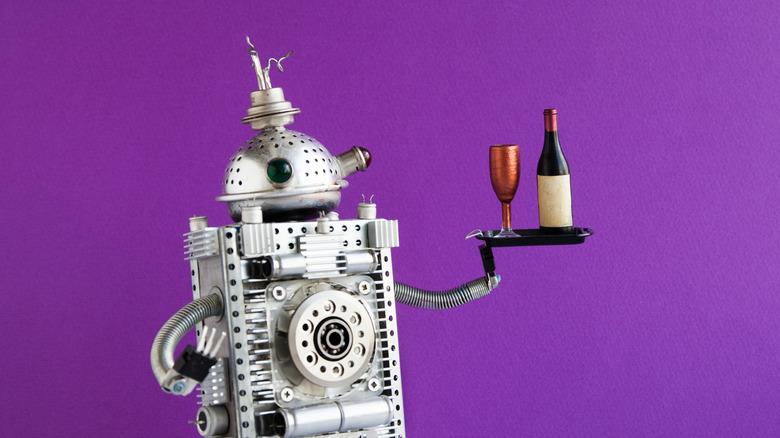AI Technology Was Just Taken One Step Further— Now With Wine Reviews
"Pretty dark for a rosé, and full-bodied, with cherry, raspberry, vanilla and spice flavors. It's dry with good acidity." These words weren't written by a vineyard-hopping wine expert or a sommelier, but by AI technology. A team of researchers from Dartmouth College, Dartmouth's Tuck School of Business, and Indiana University has published a paper detailing the creation of an AI program that specializes in writing wine and beer reviews. Plus, it can also summarize a bunch of human reviews into its own concentrated review to help customers.
The team started by creating an AI program that could write "human-quality reviews" by sifting through a set of product features and being trained on human-written reviews of similar products. To test their creation, researchers focused on wine and beer reviews. The algorithm was fed roughly 180,000 wine reviews, complete with crucial details such as origin, grape variety, rating, and price as the metadata.
When the AI-generated reviews were pitted against those penned by humans, the key observations fell in line. To boost the veracity of their findings, non-expert study participants were asked to distinguish between the human and AI-written reviews, and they couldn't distinguish between the two sources. Once it was established that AI can write credible reviews, the team moved on to the next phase — training the AI algorithm to read human reviews and then synthesize the findings into its own original review.
A wine expert that has never tasted wine
To test the review synthesis abilities of the AI, the research team trained it on 143,000 human-written reviews covering more than 14,000 beers, alongside metadata for elements such as net score, alcohol percentage, and name of the product. After analysis by independent study participants, it was again established that an AI program can go through a wide range of human-written reviews and come up with its own version that covers all key points and observations.
The most obvious conclusion here would be the thought that AI programs like the one described above would eventually put a lot of wine experts and sommeliers out of their jobs. But that's not what the team wants to accomplish. Restaurants that can't afford sommeliers and independent sellers could use an AI toolkit like this to hawk their products. And instead of robbing professional writers and marketing experts of their jobs, an AI program of this caliber can actually assist them to write their first draft.
Coming to the general public welfare aspect, an AI-generated synthesis of multiple human reviews will help the average wine and beer consumer make a decision if he/she doesn't have enough time to go through multiple full-length reviews. Moving to the ethical side of the debate, the team argues that an AI-generated review — and review syntheses — should be clearly labeled as such so that it can't be plagiarized or passed off as an original human-written review.

